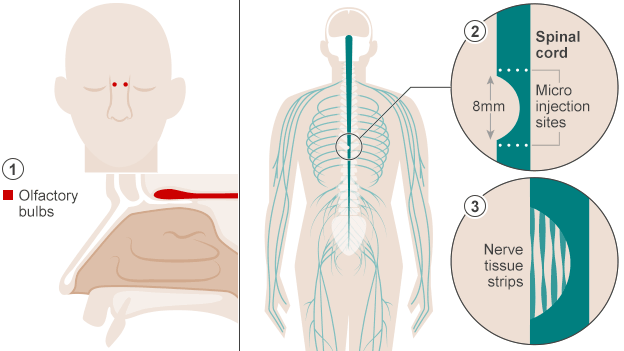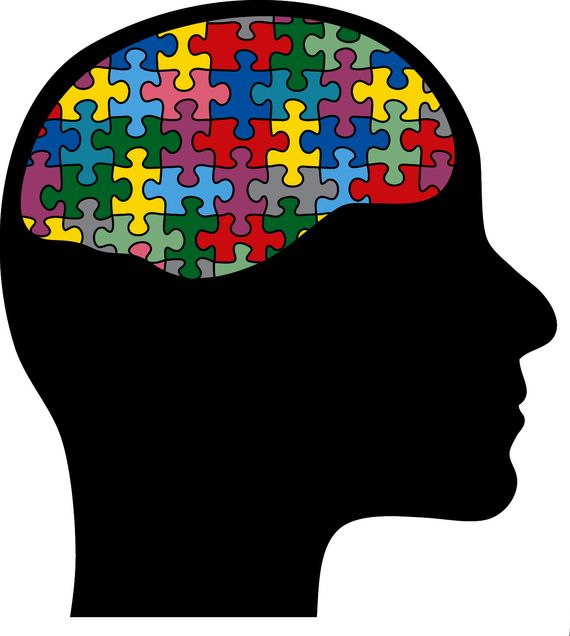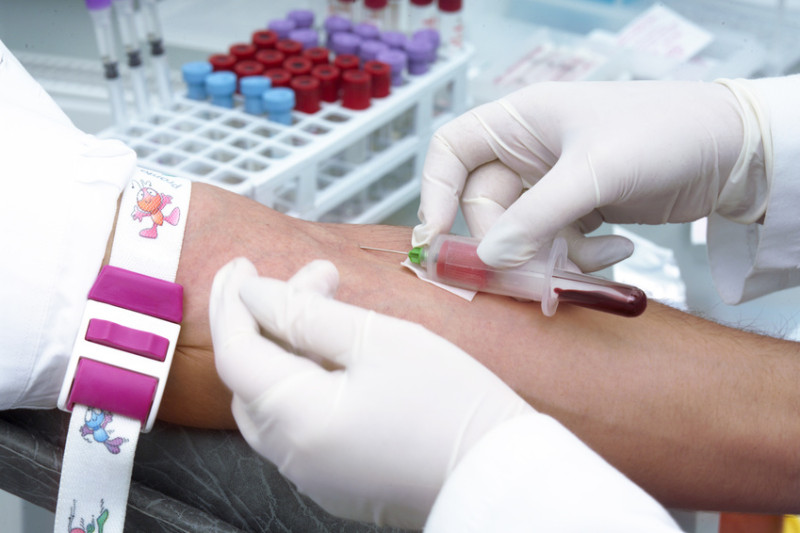Category: News
The Miracle of Neurogenesis
Neurogenesis occurs in two areas in the human adult: in the dentate gyrus of the hippocampus and in the olfactory system. The hippocampus is vital to learning new information and memory consolidation, thus it makes sense that new neurons need to be born in that region. The olfactory system is needs neurogenesis to process to new information. Majority of neurogenesis actually occurs during prenatal development. In fact humans initially have more neurons that necessary for survival. Apoptosis (programmed cell death) occurs to prune the synapses established during early development.
Many studies have been conducted that investigate ways to increase neurogenesis. Such activities include voluntary physical exercise or being in enriched environments. Experiments with rats have shown that being in an enriched environment where rats are exposed to complex objects, toys, running wheels, etc. spark improvements in performance of tasks measuring levels of learning and memory. For humans, I suppose an enriched environment could be a place involving novel stimuli or
If you think about it, how could neurogenesis be bad? I mean people with neurodegenerative diseases suffer from the consequences of neuronal loss, right? However, according to a study published in May 2014 in Science, exercise could induce amnesia. An article regarding this study states, “Adult mice that exercised on a running wheel after experiencing an event were more likely than their inactive mates to forget the experience.” Thus it appears that the neurogenesis that occurs during exercise may be “wiping out” neurons that encoded previous memories. Furthermore, when neurogenesis was pharmacologically inhibited scientists observed a recall failure in the rats. This article relates this phenomenon to the fact that children cannot form long term memories until they are 3-4 years of age.
Despite controversy about neurogenesis, olfactory ensheathing cells (OECs) have been used to help a paralyzed man walk once again. An article published in October in BBC News describes how doctors in Poland accomplished this feat. The first step to this process was to extract cells from the patient’s olfactory bulbs (they removed one olfactory bulb and grew the cells in culture). Two weeks later the cells were implanted in the areas surrounding the spinal cord damage the patient had experienced. This action allowed the spinal cord cells to regenerate because the nerve grafts acted “as a bridge to cross the severed cord.” The implications of this type of surgery are pretty amazing – it could work wonders for paralyzed veterans/other individuals and people dealing with dysfunctions relevant to spinal cord damage.
Sources:
Exercise Can Erase Memories – The Scientist
Paralyzed Man Walks Again After Cell Transplant – BBC
– Srijesa K.
Exercise as a Solution for ADHD

With the diagnosis of ADHD in children on the rise, there is a push for researching a treatment and possible solution as well. There have been numerous studies done on a correlation between increased physical activity and a higher degree of paying attention in those children with ADHD. So, is exercise the treatment that we are looking for?
In a study in the Journal of Abnormal Child Psychology, children in an elementary school classroom setting were randomly assigned to either a physical activity (PA) group or a sedentary classroom (SC) group for 31 minute periods per day for 12 weeks. Parents and teachers were asked to rate ADHD symptoms such as inattention, hyperactivity/ impulsivity, oppositional behavior and moodiness before and after the study was completed. The first analyses of this study found that the PA group was more effective at reducing inattention and moodiness at home. Follow up analyses found that the PA intervention reduced impairment associated with ADHD both at home and at school. An unexpected finding that the SC intervention was potentially useful for managing these ADHD symptoms was also found in this experiment. This study was done with a liberal analysis and without a control group, so that is important to note as well.
Study Suggests Possible Connection Between TBI and Homelessness

Many homeless men have suffered a traumatic brain injury in their life, according to a recent study conducted by researchers at St. Michael’s Hospital.
After collecting data from over 100 men aged 27 to 81 from a shelter in downtown Toronto, researchers found that nearly half of the homeless men surveyed had suffered a traumatic brain injury. Of those who had suffered a traumatic brain injury, 87 percent experienced the injury prior to becoming homeless.
Using brain imaging to predict which vegetative patients have potential to recover
According to new research, positron emission tomography (PET), a functional brain imaging technique, is a promising tool for determining which brain damaged individuals in vegetative states have the potential to recover consciousness. This is the first time researchers have tested the accuracy of functional brain imaging for diagnosis in clinical practice.
The researchers from the University of Liége in Belgium suggest that PET imaging can reveal cognitive processes that would otherwise be hidden to traditional testing. Using imaging in addition to standard behavioral assessments could improve patients with the potential for long-term recovery.
More
A Bad Joke Won’t Fool The Brain
 I think I'm funny. Some people say I'm funny. But when the moment presents itself where its my time to shine, all lights on me, this 'one' is going to be a knee slapper...nope, not so much. The first time I realized I wasn't funny was in the eleventh grade in my calculus class. My teacher's name was Mr. Butke and he easily is ranked in my top 3 'all-time' of the math professors I've encountered in my lifetime. He had a mustache that covered his mouth and you never knew whether he was smiling, smirking, or grimacing at you. It kept you guessing, I liked that. He also presented stories of how he slayed cobras in Kenyan villages while pursuing a multi-purpose cure for malaria, encephalitis' of sorts, and maybe AIDS. Bottom line, he was memorable and his stage presence resonated with my classmates and I.
I think I'm funny. Some people say I'm funny. But when the moment presents itself where its my time to shine, all lights on me, this 'one' is going to be a knee slapper...nope, not so much. The first time I realized I wasn't funny was in the eleventh grade in my calculus class. My teacher's name was Mr. Butke and he easily is ranked in my top 3 'all-time' of the math professors I've encountered in my lifetime. He had a mustache that covered his mouth and you never knew whether he was smiling, smirking, or grimacing at you. It kept you guessing, I liked that. He also presented stories of how he slayed cobras in Kenyan villages while pursuing a multi-purpose cure for malaria, encephalitis' of sorts, and maybe AIDS. Bottom line, he was memorable and his stage presence resonated with my classmates and I.
More
The Numbers are All in Your Head
Numbers. Those arithmetical values that allow us to analyze and measure our surroundings. Without them, our understanding of the world we live in would be far less interesting. But what may be even more interesting is the way we process those numbers and how closely related that process is to spatial reasoning. The connection between space and numbers, specifically how we materialize values in our heads through mental number lines has been studied over the years, revealing that spatial orientation is incredibly important to this hypothetical number line. One study led by cognitive neuroscientist Stanislas Dehaene investigated how number magnitude is spatially organized in our minds and introduced the phenomenon of Spatial-Numerical Association of Response Codes, or the SNARC effect for short.
More
New Research Suggests a Prenatal Cause and a Possible Treatment of Autism
For years, the brain of a child with autism has been a mystery. Doctors and parents wondered about the cause of autism, and it seemed that they would never get those answers. Autism is characterized on a spectrum with various expressions of difficulty with social interaction including difficulty with verbal and nonverbal communication. Children with ASD (Autism Spectrum Disorder, the official title of ‘autism’ after the May 2013 publication of the DSM-5) are associated with difficulties with motor coordination, attention, intellectual disabilities, and physical health problems like sleep and gastrointestinal problems. Autism is usually presented by age three and the process of diagnosing autism continues to change, according to the Autism Speaks foundation.
Dr. Thomas R. Insel, director of NIMH at the NIH says that “while autism is generally considered a developmental brain disorder, research has not identified a consistent or causative lesion.” The newest reports show that the architecture of the autistic brain is “speckled with patches of abnormal neurons.” In the study published in the New England Journal of Medicine, there is evidence that the brain irregularities of children with autism are due to abnormal prenatal development.
New Blood Test Can Predict Alzheimer’s Disease
For years doctors have been able to detect the early symptoms of Alzheimer's disease through scans, lumbar punctures, and genetic testing. While these methods can be painful or expensive, a new blood test has recently been discovered that can easily and accurately predict the onset of Alzheimer’s disease.
Doctor Howard J. Federoff of Georgetown University Medical Center conducted a research study in which he took blood samples from hundreds of healthy, elderly men and women over the age of 70. Over the next five years, some of these healthy individuals developed Mild Cognitive Impairment or Alzheimer’s Disease. Federoff then compared their blood samples to the samples of the healthy individuals. He found a group of ten lipids, or fats, that were present in lower amounts in the blood samples of the participants who had developed Alzheimer’s Disease.
New Study Shows Lack of Sleep Leads to Permanent Brain Damage
 We all know that sleep is one of the best ways to restore our body. For example, when we become sick, we just lie in bed and sleep all day; or after a long day bustling between class, the gym, meetings, and extracurricular activities, our body yearns to fall into a deep slumber to restore itself to its peak state. Recently, it was published that the reason sleep is so restorative is because while we sleep, cerebrospinal fluid flows more efficiently through the brain, essentially “clearing” the brain of any metabolic waste products that build up during the day (for more on this, refer to the December 9th blog post). However, just as we all understand that great feeling of satisfaction that comes after the so rarely obtained 8-9 hour sleep cycle (yes, young college-aged adults should ideally be getting 8-9 hours of sleep a night), we also can all relate to the groggy, confused, cognitively impaired state that comes after the all-night cramming and three hours of sleep, and before the double espresso from Starbucks. Until recently, this chronic state of unrest considered normal by college students, shift workers, and truck drivers, wasn’t thought to have any long lasting damage; it was considered common knowledge that catching up on sleep during weekends or vacations made up for the hours of sleep lost during finals week. However, a new study published on March 18th in the Journal of Neuroscience refutes this; the study, out of University of Pennsylvania’s Perelman School of Medicine, shows that chronic sleep loss may be much more destructive than previously thought, leading to permanent cell damage and neuronal death.
We all know that sleep is one of the best ways to restore our body. For example, when we become sick, we just lie in bed and sleep all day; or after a long day bustling between class, the gym, meetings, and extracurricular activities, our body yearns to fall into a deep slumber to restore itself to its peak state. Recently, it was published that the reason sleep is so restorative is because while we sleep, cerebrospinal fluid flows more efficiently through the brain, essentially “clearing” the brain of any metabolic waste products that build up during the day (for more on this, refer to the December 9th blog post). However, just as we all understand that great feeling of satisfaction that comes after the so rarely obtained 8-9 hour sleep cycle (yes, young college-aged adults should ideally be getting 8-9 hours of sleep a night), we also can all relate to the groggy, confused, cognitively impaired state that comes after the all-night cramming and three hours of sleep, and before the double espresso from Starbucks. Until recently, this chronic state of unrest considered normal by college students, shift workers, and truck drivers, wasn’t thought to have any long lasting damage; it was considered common knowledge that catching up on sleep during weekends or vacations made up for the hours of sleep lost during finals week. However, a new study published on March 18th in the Journal of Neuroscience refutes this; the study, out of University of Pennsylvania’s Perelman School of Medicine, shows that chronic sleep loss may be much more destructive than previously thought, leading to permanent cell damage and neuronal death.
Spritz: The Faster Speed Reader Technique
How many times have you not completed the reading assignment for you systems physiology class because you ran out of time? How many times have you attempted to use speed reading techniques like not subvocalizing, or talking to yourself as you read? A new Boston-based start-up claims to have solved the ‘slow reader’ problem and promises 600 words per minute for all.
One must be skeptical when approaching the front line technologies, as it is easy to be convinced that people have invented what you desire. For instance, when Tony Hawk promotes a brand “hoverboard” technology, Back to the Future fans went berserk. However, Spritz is a bit more open about the actual science behind their product.


